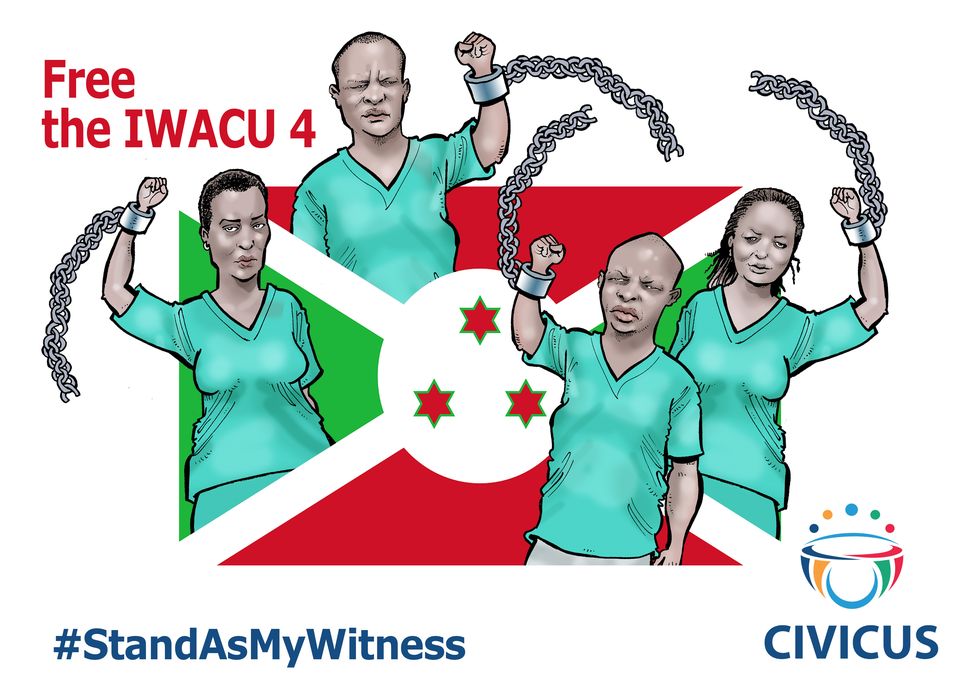
Association
Prisoners released by presidential decree
On 9th March 2021, 5,225 Burundian prisoners were pardoned pursuant to a presidential decree dated 5th March 2021, in an attempt to decongest the prisons. The decree is likely to benefit prisoners convicted of minor crimes, pregnant women or those with children, minors, prisoners with chronic diseases, prisoners aged 70 and above, and inmates with mental disorders. The presidential decree also resulted in the release of four journalists who were convicted of threatening the country's security being released. The four journalists were arrested in October 2019 while reporting in Bubanza province on the insecurity that befell the region. They were accused of attempts of conspiracy that undermined the country’s internal security which the four journalists refuted, arguing that they were only doing their work. In June 2020, the court dismissed their appeal and they were sent to Bubanza Prison to serve their sentences, but they were granted a presidential pardon later in the year.
Four journalists imprisoned for a year in Burundi on charges that rights groups condemned as baseless have been released after receiving a presidential pardon, according to a decree seen Thursday by AFP. pic.twitter.com/GaYOsjaSJQ
— Akayezu Jean de Dieu (@AkayezuJa) December 26, 2020
Reduced sentence for HRD Germain Rukuki
On 24th March 2021, the Burundian Supreme Court ordered a re-trial for human rights defender and anti-torture campaigner Germain Rukuki, who is currently serving a 32-year prison sentence. The court rendered invalid the July 2019 Appeal Court decision to uphold Rukuki’s conviction and prison sentence and sent the case back to the Ntahangwa Appeal Court, with a newly composed bench. This was based on procedural irregularities. As previously reported by the Monitor, Rukuki was charged with “threatening state security” and taking part in an “insurrectional movement.” Germain Rukuki campaigned against torture in Burundi and was arrested in connection with his previous work with local organisation Action by Christians for Abolition of Torture (ACAT-Burundi), which had been shut down by the government. On 26th April 2018, he was found guilty of “rebellion”, “threatening State security”, “participation in an insurrectional movement” and "attack on the authority of the State" and sentenced to 32 years in prison. On 21 June 2021, the Appeal Court of Ntahangwa ruled on the case of Germain Rukuki and sentenced him to one year in prison.
GOOD NEWS - Burundian human rights activist Germain Rukuki has had his 32-year jail sentence on trumped-up charges reduced to one year. He's expected to be released soon#Burundihttps://t.co/QDBSfErr2S
— News From Amnesty (@NewsFromAmnesty) June 22, 2021
Human rights organisations condemn continued human rights violations against refugees
On 11th March 2021, Defend Defenders released a statement at the UN Human Rights Council expressing concern about continued human rights violations and ongoing impunity in Burundi. On 8th April 2021, UN Secretary-General António Guterres announced that the UN special envoy’s office in Burundi was set to close on 31st May 2021. In November 2020, Burundi informed the UN that the office would be closed in December 2020 but the UN needed more time to phase out, and the closure was agreed for May 2021. The office was established during the 2015 political crisis. The UN will continue monitoring Burundi via the special envoy to the Great Lakes region, as part of its monitoring of and reporting on the sub-region. The UN High Commissioner for Refugees (UNHCR) raised concerns about the ongoing targeting of Burundian refugees in Tanzania. According to UN reports, Burundian political opposition members seeking asylum in Tanzania are tracked by Burundian intelligence agents posing as refugees and face the risk of arbitrary arrest by the Tanzanian authorities. Arbitrary arrests and enforced disappearances create a climate of fear amongst refugees.
Burundi refugees and asylum-seekers in Tanzania have been subjected to arbitrary arrest, enforced disappearance and other violations, according to a group of experts appointed by the UN Human Rights Council @UN_HRChttps://t.co/Jhp5XoEVFl
— UN News (@UN_News_Centre) April 13, 2021
Expression
Burundian media outlets suspended
On 24th March 2021, Rwanda suspended independent Burundian media outlets in exile, including Radio Publique Africaine (RPA), INZAMBA and Radio Télévision Renaissance. After the crisis erupted in 2015, the media outlets moved to Rwanda after the failed coup against then-President Pierre Nkurunziza. On 12th April 2021, RPA resumed broadcasting following a two-week interruption. On 20th April 2021, Reporters Without Borders released its annual World Press Freedom Index. Burundi ranked 147th out of 180 countries, an increase of 13 places from the 2020 Index. This is due to a number of positive changes, including the release of the four IWACU journalists and the government’s efforts to resume dialogue with banned local media.